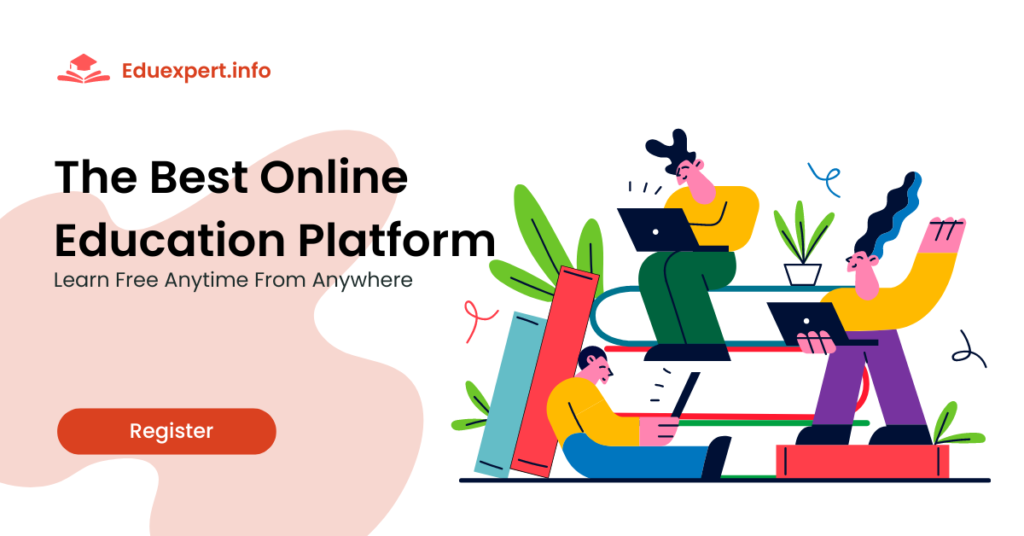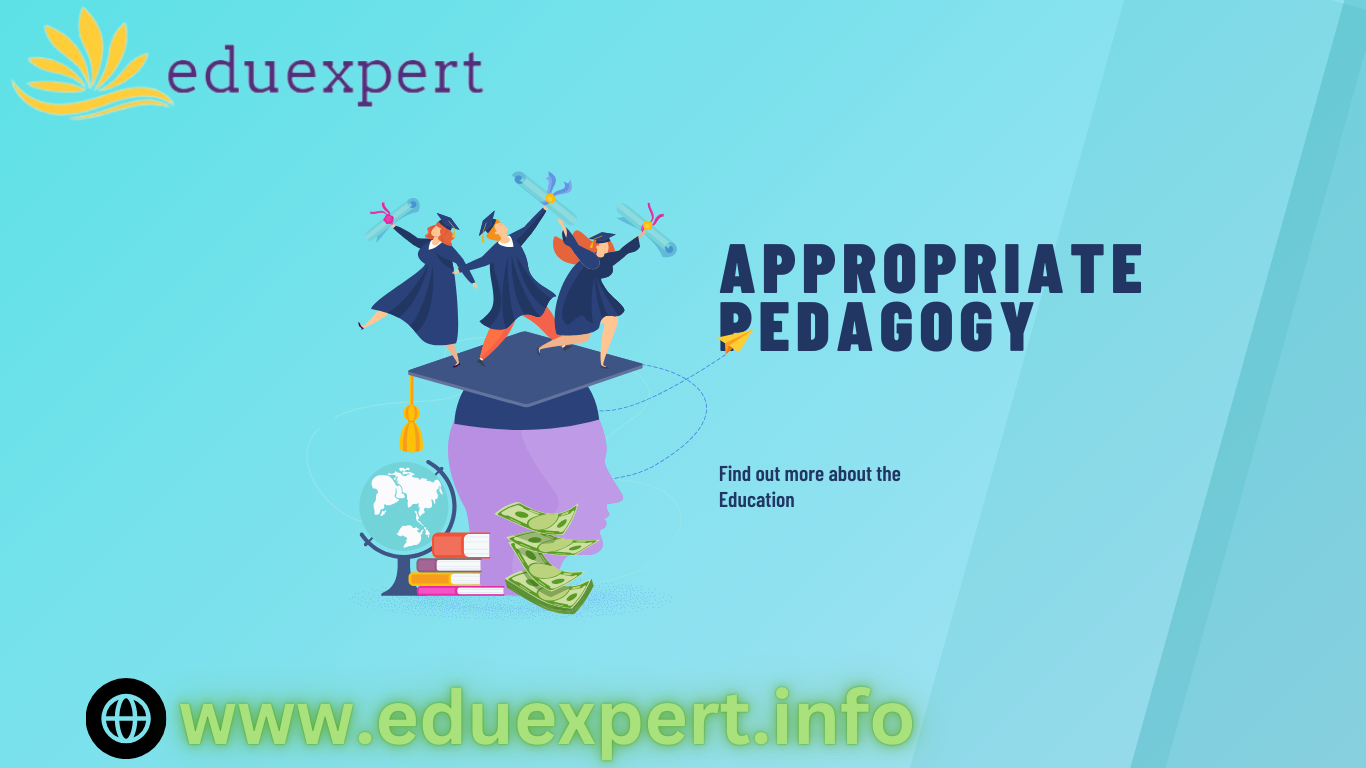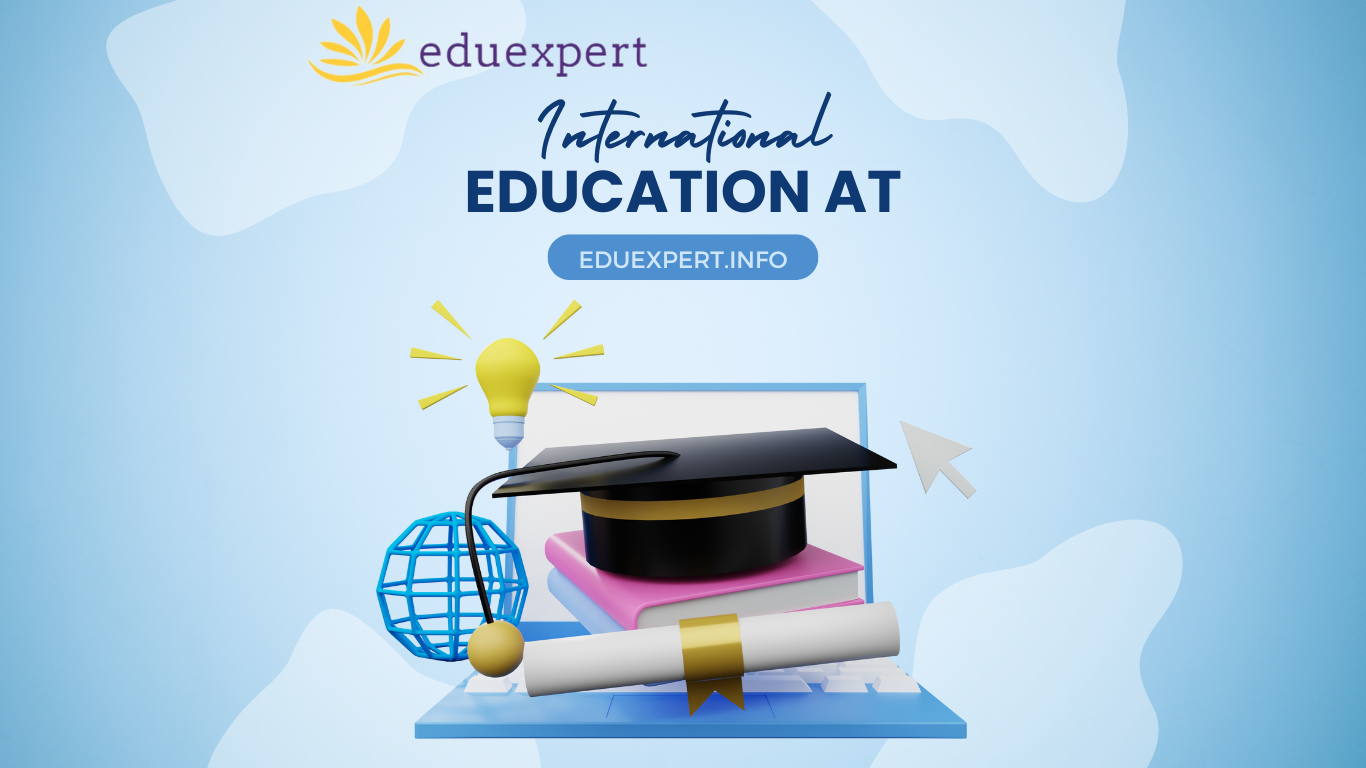Introduction
In a generation where digital transformation is reshaping every aspect of our lives, education has not remained untouched. The rise of online education platforms has revolutionized the way knowledge is disseminated, making learning accessible to millions across the globe. With many platforms at our fingertips, the power of knowledge is just a click away. But with so many options, how does one choose the right platform?
The quest for the best education platform is not just about finding a repository of information but about discovering a gateway that aligns with individual learning styles and educational goals. Whether you are a student aiming to complement your studies, a professional looking to skill up, or simply a curious mind eager to learn something new, the right platform can significantly enhance your learning experience.
At eduexpert.info, we understand these platforms’ pivotal role in today’s educational landscape. This guide aims to navigate the world of online learning platforms, offering insights into their varied formats, essential features, and how they cater to diverse learning needs. By the end of this article, you’ll be equipped with the knowledge to choose a platform that meets your educational requirements and inspires and facilitates continual growth.
Join us as we delve into the nuances of selecting the perfect education platform, ensuring that you make an informed decision that paves the way for a lifetime of learning.
What Are Education Platforms?
Education platforms are dynamic online environments designed to facilitate learning through digital means. These platforms range from Massive Open Online Courses (MOOCs) to sophisticated Learning Management Systems (LMS) and interactive apps that offer a variety of educational resources tailored to different learning styles and objectives
Types of Education Platforms
- MOOCs (Massive Open Online Courses): Platforms like Coursera, edX, and FutureLearn provide access to courses from universities around the world. They are ideal for learners looking for structured coursework in various subjects.
- Learning Management Systems (LMS): These platforms, such as Blackboard, Moodle, and Canvas, are often used by educational institutions to organize courses, materials, and assessments, facilitating a seamless interaction between faculty and students.
- Interactive Learning Apps: Platforms like Khan Academy and Duolingo use interactive tools and gamification to enhance the learning experience, making education both engaging and effective for users of all ages.
Importance of Education Platforms
The significance of education platforms in the modern educational ecosystem cannot be overstated. They break geographical barriers, allowing individuals worldwide to access quality education from prestigious institutions. This democratization of education is pivotal in an increasingly globalized world where knowledge and continuous learning are key drivers of personal and professional growth.
Moreover, these platforms cater to a variety of learning preferences and schedules. Whether you prefer visual learning aids, interactive quizzes, or in-depth articles, education platforms offer resources in multiple formats to suit different needs. This flexibility allows individuals to learn at their own pace and in their own time, making education more inclusive and accessible.
At eduexpert.info, we recognize the transformative impact these platforms can have on a learner’s journey. By providing comprehensive reviews and insights, we help learners navigate this vast landscape, ensuring they find the right tools to fuel their curiosity and drive their success.
Criteria for Choosing the Best Education Platform
Selecting the right education platform can be as crucial as the learning itself. The ideal platform enhances understanding and fits seamlessly into the learner’slearner’s life. Here are some key criteria to consider when choosing the best education platform:
User Needs
Different users have varying educational goals:
- Students might seek comprehensive courses that supplement their academic studies or prepare them for exams.
- Professionals could be interested in skill enhancement courses that offer certifications to boost their career prospects.
- Hobbyists might look for platforms that offer flexibility and a wide range of topics to explore new interests.
Features to Look For
- Interactivity: The best platforms engage users with interactive elements like quizzes, peer interactions, and hands-on projects.
- Course Variety: A broad selection of courses ensures that users can find what they need, whether data science, humanities, or anything else.
- Certifications: Many professionals require certifications to validate their learning for career advancements.
- User Support: Robust support systems, including forums, real-time help, and detailed FAQs, enhance the learning experience.
- Mobile Access: In today’s mobile-first world, platforms that offer a mobile app or a responsive design score higher on accessibility.
- Cost: Free courses are great for casual learning, but many platforms offer more in-depth paid courses and subscriptions that may provide more value.
The cost of education platforms varies widely:
- Free Platforms: Many platforms offer free courses, which are excellent for learners on a budget.
- Subscription Models: Some platforms operate on a subscription basis, providing access to an extensive library of courses for a monthly or annual fee.
- Paid Courses: Pay per course for specialized topics or advanced courses can lead to higher-quality content and more personalized learning experiences.
At eduexpert.info, we help you analyze these factors with in-depth reviews and comparisons, ensuring you choose a platform that meets your educational needs and fits your budget and lifestyle.
Reviews of Top Education Platforms
When it comes to selecting an education platform, understanding the offerings and strengths of each is crucial. Here’s a detailed review of some of the top education platforms available today, providing insights into what sets them apart and how they cater to different learning needs.
Coursera
Overview: Coursera partners with leading universities and companies worldwide to offer courses and degrees across numerous disciplines.
Key Features:
- Accredited Certifications: Courses often come with certificates from world-renowned institutions.
- Course Variety: Offers everything from individual courses to full degree programs.
- Flexible Learning Options: Learn at your own pace with adjustable deadlines.
Pros:
- High-quality, university-level courses.
- Partnerships with prestigious institutions enhance the value of certifications.
Cons:
- Some advanced courses and degrees can be quite expensive.
Udemy
Overview: Udemy provides a vast library of courses in various fields taught by industry experts and professionals.
Key Features:
- Extensive Course Catalog: Over 130,000 video courses on various topics.
- Lifetime Access: Pay once and have lifetime access to the course materials.
- Community and Q&A: Interactive community and Q&A sections with instructors.
Pros:
- Affordable prices with frequent discounts.
- Courses on niche topics that are not commonly covered elsewhere.
Cons:
- Course quality can vary since any expert can create and sell a course.
Khan Academy
Overview: Khan Academy offers free courses primarily aimed at K-12 students and includes introductory college-level subjects.
Key Features:
- Completely Free: All resources are available at no cost.
- Strong STEM Focus: Excellent resources for students in science, technology, engineering, and mathematics.
- Interactive Exercises: Provides instant feedback to help students understand concepts better.
Pros:
- No cost to access.
- Strong track record of helping students with foundational subjects.
Cons:
- More suitable for school-level education than for professional or adult learning.
LinkedIn Learning
Overview: Specializes in career development, offering courses to improve job skills and enhance professional qualifications.
Key Features:
- Professional Development: Courses designed to boost employability and career skills.
- Integration with LinkedIn: Connects learning with your professional profile.
- Expert Instructors: Courses taught by industry experts.
Pros:
- Directly ties course completion to professional networking and opportunities.
- Includes assessments to certify skills.
Cons:
- Mostly focuses on professional development, which might only cater to some interests.
Each platform has its strengths and targets different segments of the learning market. Whether you’re looking to advance your career, supplement your education, or explore new interests, there is a platform tailored to your needs.
How to Make the Most of Your Chosen Education Platform
Once you’ve selected an education platform that suits your needs, the next step is maximizing it’s benefits maximizing its benefits. Here are some strategies to ensure you get the most out of your chosen platform:
Setting Learning Goals
- Define Clear Objectives: Before starting, define what you hope to achieve. Are you looking to gain a specific skill, earn a certificate, or explore a new subject for fun? Clear goals can guide your course selection and keep you motivated.
- Set Achievable Milestones: Break your main goal into smaller, manageable milestones. This can help keep your learning on track and give you a sense of accomplishment as you progress.
Utilizing Platform Features
- Interactive Tools: Use interactive tools such as quizzes, forums, or live sessions. These can enhance your understanding and retention of the material.
- Supplemental Resources: Many platforms offer additional resources like readings, project files, or offline events. Make sure to use these to complement your learning.
- Feedback Systems: Use the platform’s feedback systems, like assignments and peer reviews, to refine your knowledge and skills.
Engaging with the Community
- Participate in Discussions: Engage with other learners in discussion groups or forums. This can provide new insights and make learning more interactive and enjoyable.
- Networking Opportunities: Some platforms allow you to connect with professionals and experts. Take advantage of these networking opportunities to build connections and gain industry insights.
Continuous Learning
- Regular Practice: Regularly revisiting topics and practicing skills can improve mastery and long-term retention.
- Stay Updated: Keep an eye on new courses or updates to existing courses on your platform. The field of education and technology evolves rapidly, and staying updated can provide you with a competitive edge.
By actively engaging with the course material, utilizing the full range of features offered by the education platform, and interacting with the community, you can significantly enhance your learning experience. These strategies will help you achieve your learning objectives and ensure that the journey is enriching and enjoyable.
Once you’ve selected an education platform that suits your needs, the next step is maximizing it’s benefits maximizing its benefits. Here are some strategies to ensure you get the most out of your chosen platform:
Setting Learning Goals
- Define Clear Objectives: Before starting, define what you hope to achieve. Are you looking to gain a specific skill, earn a certificate, or explore a new subject for fun? Clear goals can guide your course selection and keep you motivated.
- Set Achievable Milestones: Break your main goal into smaller, manageable milestones. This can help keep your learning on track and give you a sense of accomplishment as you progress.
Utilizing Platform Features
- Interactive Tools: Use interactive tools such as quizzes, forums, or live sessions. These can enhance your understanding and retention of the material.
- Supplemental Resources: Many platforms offer additional resources like readings, project files, or offline events. Make sure to use these to complement your learning.
- Feedback Systems: Use the platform’s feedback systems, like assignments and peer reviews, to refine your knowledge and skills.
Engaging with the Community
- Participate in Discussions: Engage with other learners in discussion groups or forums. This can provide new insights and make learning more interactive and enjoyable.
- Networking Opportunities: Some platforms allow you to connect with professionals and experts. Take advantage of these networking opportunities to build connections and gain industry insights.
Continuous Learning
- Regular Practice: Regularly revisiting topics and practicing skills can improve mastery and long-term retention.
- Stay Updated: Keep an eye on new courses or updates to existing courses on your platform. The field of education and technology evolves rapidly, and staying updated can provide you with a competitive edge.
By actively engaging with the course material, utilizing the full range of features offered by the education platform, and interacting with the community, you can significantly enhance your learning experience. These strategies will help you achieve your learning objectives and ensure that the journey is enriching and enjoyable.
Future of Education Platforms
The landscape of education platforms is continuously evolving, driven by technological advancements and changing learner needs. Here’s a glimpse into the current trends and potential future developments in this dynamic field:
Current Trends
- Artificial Intelligence (AI) and Machine Learning: AI is increasingly integrated into educational platforms to provide personalized learning experiences. Machine learning algorithms can adapt content based on individual learning styles and progress, making education more effective and engaging.
- Virtual Reality (VR) and Augmented Reality (AR): These technologies are used to create immersive learning environments that simulate real-world scenarios. For example, medical students can perform virtual surgeries, enhancing their learning experience beyond traditional classroom boundaries.
- Microlearning: This trend focuses on delivering content in small, manageable chunks, making it easier for learners to absorb and retain information, which is especially useful for busy professionals.
- Gamification: Incorporating game elements into learning helps increase motivation and engagement, making the educational process fun and competitive.
Predictions for the Future
- Greater Integration with Blockchain Technology: Blockchain could be used to securely store and share educational credentials, reducing fraud and making it easier to verify qualifications across platforms and institutions.
- Expansion of Peer-to-Peer Learning: Future platforms might leverage community learning more extensively, using technology to connect learners from around the globe, facilitating peer-to-peer education and collaboration.
- Increased Use of Big Data: As platforms collect more data on learner behaviors and outcomes, they will likely use this data to refine further and customize learning experiences, predicting learner needs before they arise.
- Lifelong Learning Portfolios: With the shift towards continuous education, platforms may evolve to offer lifelong learning portfolios that track and suggest educational pathways throughout a person’s career.
- Sustainability in Learning: With increasing awareness of environmental and social issues, future platforms might focus more on sustainability, offering courses and tools that help learners understand and tackle global challenges.
The future of education platforms promises not only to make learning more accessible and personalized but also to transform how we perceive and approach education at all stages of life.
Conclusion
The right education platform can significantly impact your learning journey in today’s digital age. Whether you are a student, a professional, or a hobbyist, choosing the best platform to suit your needs can enhance your skills, expand your knowledge, and open up new opportunities. From comprehensive MOOCs to specialized LMS and interactive learning apps, a platform is tailored for everyone.
At eduexpert.info, we are committed to supporting your educational aspirations. Our website offers a wealth of free learning resources through well-researched and insightful blog posts. These posts cover a variety of subjects, from the latest trends in education technology to practical tips for maximizing your learning experience. We aim to empower you with the knowledge you need to make informed decisions about your education.
Explore our extensive collection of blog posts to learn about the latest in AI-driven personalized learning, immersive VR educational environments, and the best practices for effective online learning. Whether you’re looking to supplement your academic studies, enhance your professional skills, or explore new hobbies, eduexpert.info provides the guidance and resources to help you succeed.
Join our community of learners today and take the first step towards a brighter educational future. With the right platform and the right resources, the possibilities are endless. Start your journey with eduexpert.info and discover the best education platforms to transform your learning experience.





